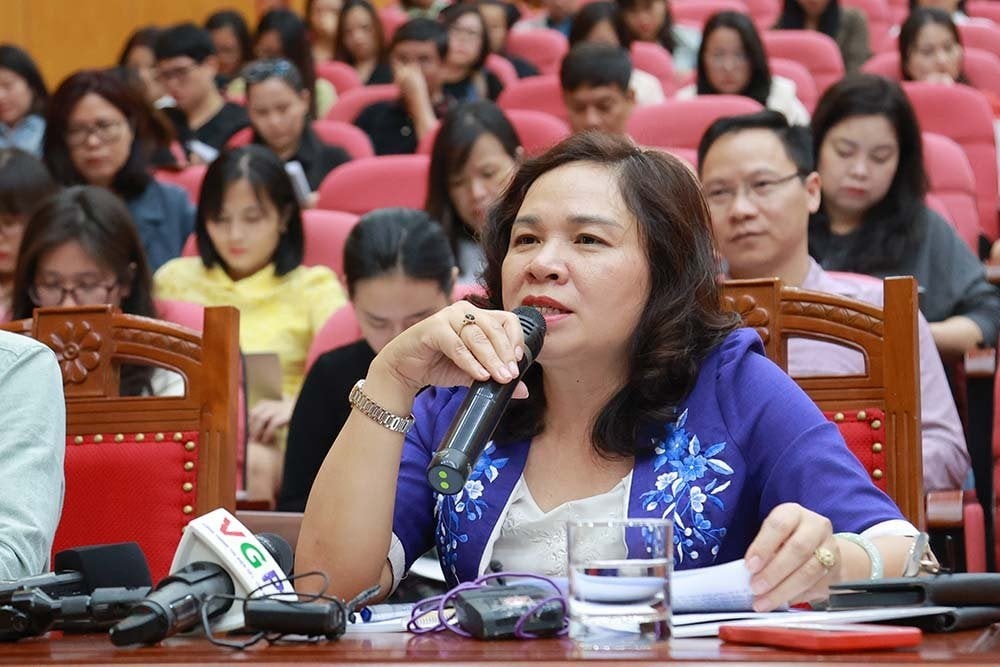
Yesterday afternoon, at a press meeting to provide medical information of public concern organized by the Ministry of Health, Deputy Director of the Central Institute of Hygiene and Epidemiology Duong Thi Hong talked about issues related to vaccine shortage in the expanded vaccination program and solutions to resolve this situation. She revealed that most vaccines in the National Expanded Program on Immunization are produced domestically.
However, according to current regulations, they must go through 9 steps in the procurement process whereas the Ministry of Health just received funding to buy vaccines for the special program last August.
In reality, the Ministry has developed a plan to supply vaccines from 2022, so the number of vaccines that will be rolled over to 2023 will also provide some support over the past time.
The country has been lacking the ‘5 in 1’ vaccine since February and lacks the booster DPT vaccine to prevent diphtheria - pertussis – tetanus while most of the remaining vaccines are supplied until October, said Ms. Hong. She added that a shortage of most vaccines has currently been recorded in all districts countrywide.
In the face of a shortage of vaccines nationwide, to protect children against dangerous infectious diseases, the Ministry of Health has mobilized funding sources. Last July, the Ministry of Health received more than 250,000 doses of the ‘5 in 1’ vaccine and on the evening of December 15, it continued to receive 490,600 doses of ‘5 in 1’ vaccine.

Simultaneously, she affirmed that although there has been a shortage of vaccines recently, the number of children getting vaccine shots on a national scale still reached 66 percent and the rate of children vaccinated with '5 in 1" vaccines reached 52.6 percent.
A representative of the Central Institute of Hygiene and Epidemiology also said that currently, the majority of vaccines in the national Expanded Program for Immunization are produced domestically. Currently, the Ministry of Health has evaluated and sent the maximum price plan to the Ministry of Finance for consideration and approval.
Based on the Ministry of Finance’s decision, the Ministry of Health will approve the specific price plan. The Ministry of Health is coordinating closely with the Ministry of Finance to resolve this issue so that the problem will be solved thoroughly in December 2023.
























